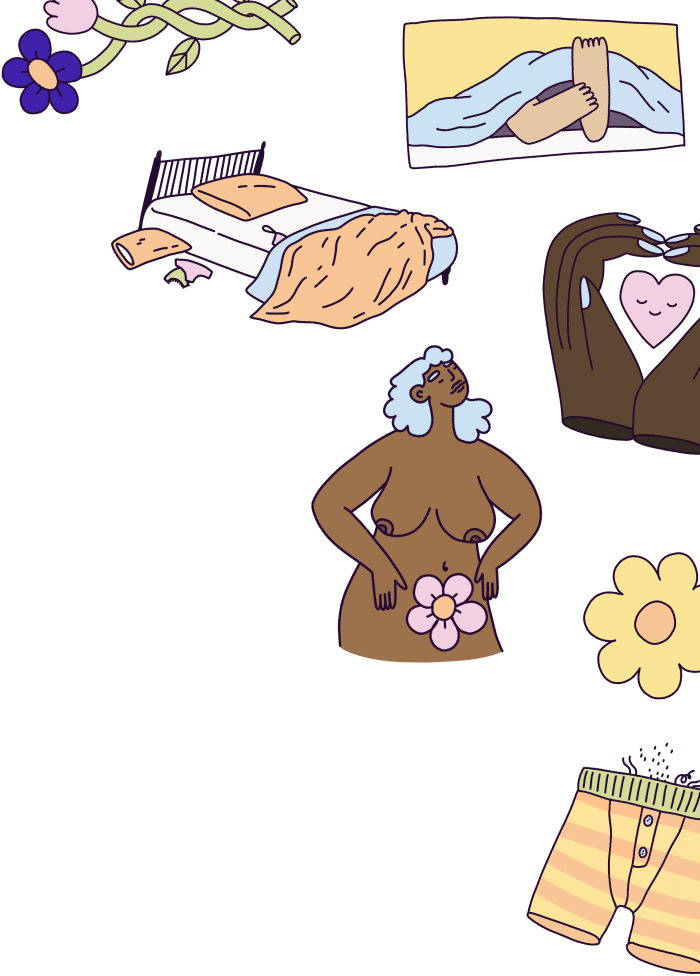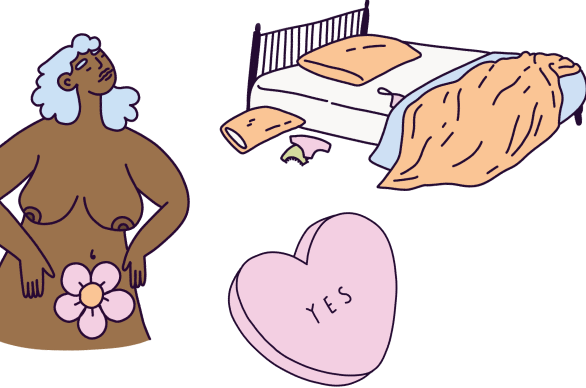

The wide world of sex and intimacy
We’ve heard from young people that sex education at school and at home doesn't always answer the questions you have about sex, intimacy and relationships.
There is a need for relevant sex education that does not shy away from subjects such as porn, healthy relationships, sexual consent, LGBTQIA+ relationships, and also on how trauma can impact on all of this.
Mainstream sex ed can over emphasise the negatives, like unwanted pregnancy and
Many young people end up turning to porn to learn about how sex really works. But porn wasn’t created to educate, it was made to make money. Learning about sex from porn can lead to some pretty unrealistic expectations on how sex should look and feel, and even who you think you ‘should’ be having sex with.
That’s why we created the Gist, to talk directly about sex and intimacy in a way that gives you the information you need to make your own choices.
Some of you may be sexually active now, some may not. It’s normal either way. We’ve pulled together a bunch of info about sex, porn and intimacy to help make things a little easier and clearer for you.
What are we talking about when we talk about ‘having sex’?
Traditionally 'sex' has often been shorthand for sexual
There is a whole range of physical acts including vaginal, anal, oral, digital (sometimes called 'fingering'), manual (often called a 'handjob' or 'masturbation' for solo sex), or even the use of toys and other supports. So when we talk about sex, we mean any act that makes you feel good sexually.
The Wide World of Sex

Why do we have sex?
There are many reasons why we have sex. The one that is most often talked about in sex ed is to reproduce, or make babies. But for most people, sex is a way to experience mutual pleasure, or get closer with another person. In fact, many types of sex are for pleasure alone and can't lead to reproduction.
❓ Reflection
What do you think of when you think of sex?
Different strokes for different folks
Sex means different things to different people, at different times. Not all bodies are the same. What works for one person might not work for another. Or something that worked for someone else might not work for you.
You might ask yourself: How do I know what works for me, and what doesn’t? What about for my partner? What do I really want? What do they really want?
These are big, but normal questions. And it’s a journey to figure it out. At the end of the day, any type of sex or preference is totally OK, as long as everyone involved is consenting, it's fair and doesn’t hurt anyone. In other words, it is ethical .
Figuring it all out in the changing world
Whether you are young or old, in some ways, all of us are growing up together in a new world, where social norms, attitudes, and ideas about sex and relationships are changing faster than they ever have before. For example:
‘Good' sex
So there is no ‘right’ or ‘normal’ way to have sex. You do what’s right for you. But there are things you can do so your sex life matches up with your values and is fair for everyone. However, it can be confusing to know how to practice ‘good’ or ‘ethical’ sex when it isn’t shown in movies, culture and porn.
So what does ‘good’ or at least better sex look like? That’s up next.



